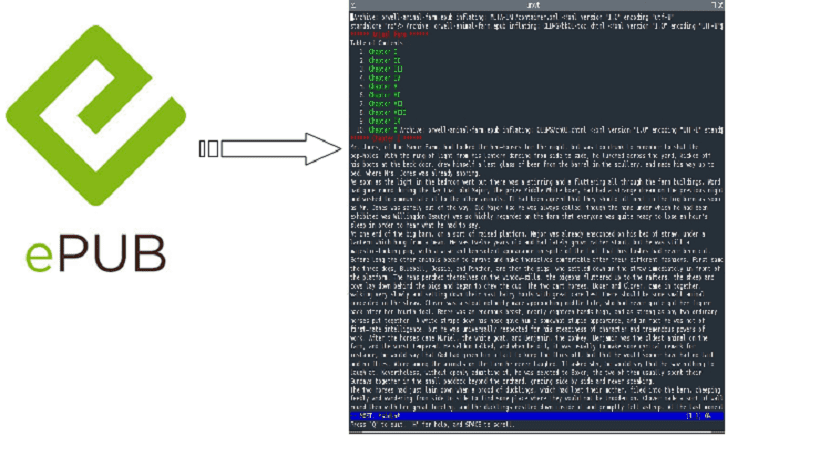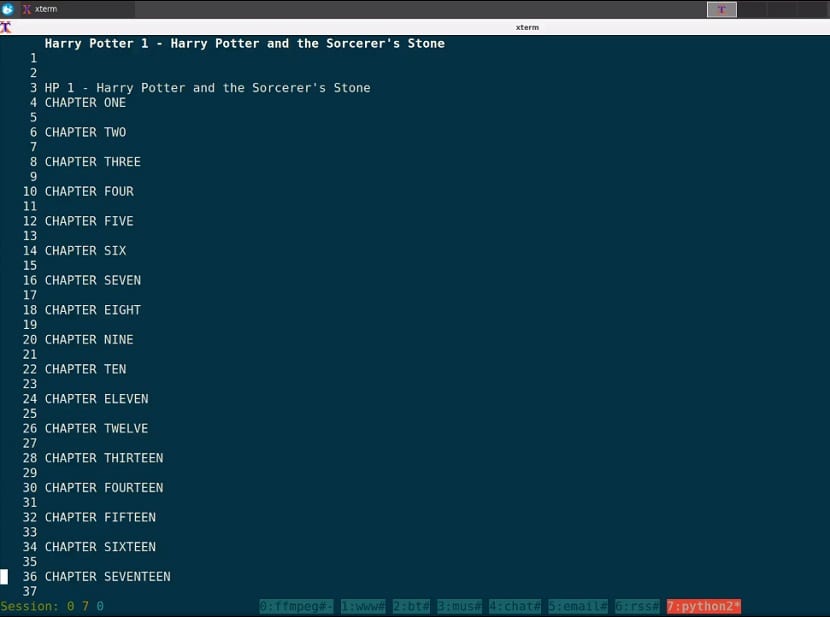
There are many people who daily read digital books or ebooks on their computers, on their mobile devices as well as on ebook readers, tablets and so on.
In the official repositories of the main Linux distributions Different software dedicated to reading and managing ebooks are available.
Among the most popular is the Caliber, which even allows digital books to be synchronized with ebook readers.
These electronic books currently many of them are distributed under the EPUB or ePub format (acronym for the English expression Electronic publication) which is an open source resizable format to read texts and images. From EPUB3 it also allows to attach audio.
The ePub format and many readers of it support the following:
- Redistributed document: optimize text for a particular screen
- Fixed layout content - Prepaid content can be useful for certain types of highly designed content, such as picture books intended only for larger screens, such as tablets.
- Like an HTML website, the format supports inline vector and raster images, metadata, and CSS styles.
- Page markers
- Highlighted passage and notes.
- A library that stores books and can be searched.
- Resizable fonts, changing text and background colors
- Support for a subset of MathML
- Digital Rights Management - May contain Digital Rights Management (DRM) as an optional layer
About ePub
As mentioned earlier, there are many applications that we can use to read our electronic books on any of our electronic devices.
Each of these with its own characteristics and qualities that developers provide of these to the users.
Most of these applications tend to offer many things, so it is not always what many are looking for 'just to be able to read'.
Alternatively to these apps, they can use the terminal to read digital books with the ePub application, an open source tool written in Python.
Reading an ebook on the terminal can become, for example, in the case of people who have a computer only with few resources or even when the user no longer wants to install large packages just to read a book.
To do this, the best option is the ePub tool, which allows us to easily view and read books directly on a terminal.

How to install epub reader on Ubuntu and its derivatives?
For people who are interested in being able to install this tool that will allow them to be able to read epub on their terminal, they should follow the following steps.
To use the epub tools, you must first install the python-BeautifulSoup package.
This package can be found in most of the current Linux distributions, so for Ubuntu and its derivatives you should not have a problem with its installation.
It is enough to be able to open a terminal on your system with Ctrl + Alt + T and in it you must execute the following command:
sudo apt-get install python-beautifulsoup
Once the tool has been downloaded, we must now obtain the epub reader application, for this we just have to download it from github.
In the terminal we only have to type the following command:
git clone https://github.com/rupa/epub.git
We enter the folder just downloaded with
cd epub
And ready we can now use the application to read our epub files from the terminal.
To read an e-book from the terminal, just use the following command, adding the path of the epub file.
python epub.py /ruta/a/tu/archivo
How to use the epub tool to read ebooks on the terminal?
The use of this tool is quite simple, you just have to open the file you want to read and to be able to perform some actions within it in the terminal, you can use the following keys:
- Esc, q: Exit the document
- Tab, Left, Right Arrow: to switch between views and chapters
- Top: one row up
- Down: one line down
- Page Up: one page
- PgDown: one page down
- PgUp: one page up